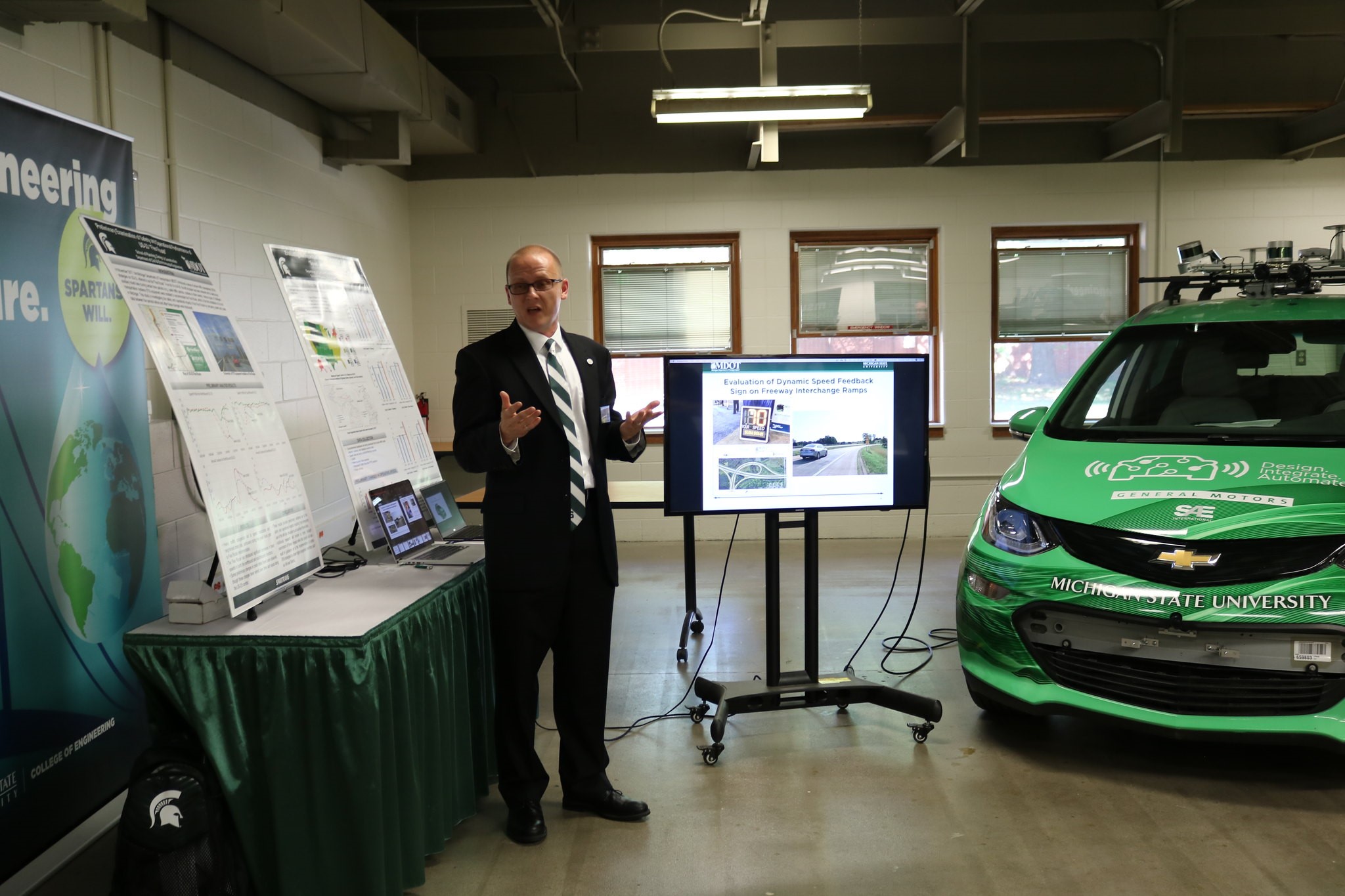MSU to establish Research Experience for Undergraduate (REU) Site in sociomobility
Michigan State University will provide opportunities for a diverse group of talented undergraduate students from across the United States to engage in a wide range of research studies related to “sociomobility” as part of a recently funded grant.

Michigan State University will provide opportunities for a diverse group of talented undergraduate students from across the United States to engage in a wide range of research studies related to “sociomobility” as part of a recently funded grant.
Sociomobility, which is the area of research that lies at the intersection of engineering and the social sciences, involves the investigation of the societal implications of mobility advances such as self-driving vehicles, ride-hailing service, and micromobility.
MSU has been awarded a $349,954 grant from the National Science Foundation (NSF) to establish a Research Experience for Undergraduates (REU) Site in sociomobility. The three-year program will provide research and learning opportunities for students, in addition to leading to applied research and workforce development benefits for industry.

Peter Savolainen, MSU foundation professor of civil and environmental engineering in the College of Engineering, said the new REU site will strengthen Michigan State’s growing national leadership role in this critical and under-researched area.
“Rapid advances by the automotive industry in the technical domain have created an inescapable need to examine the social consequences of the large-scale deployment of autonomous vehicles,” Savolainen explained.
“With this new REU site, MSU will have both the opportunity and responsibility of training future thought leaders to address solutions that meet both the technical and social needs of society.”
The program will:
- Examine social, political, legal, and economic concerns that may affect the widespread adoption of autonomous vehicles (AVs);
- Assess issues related to social equity and the accessibility of AVs to groups with limited mobility alternatives, including adolescents, elderly, low-income, and disabled individuals; and
- Study the implications of AVs on public health, urban planning, workforce development, and the environment.

Eva Kassens-Noor, an associate professor of urban & regional planning in the School of Planning, Design and Construction, is the co-principal investigator on the project. She said that each summer in 2021, 2022, and 2023, the REU site will engage a new 10-student cohort in a rigorous 10-week program that offers a range of educational and research opportunities under the sociomobility theme.
Students will participate in a series of short technical courses, professional development workshops, and a lunch-and-learn seminar series. The program will conclude with students presenting their results in a student symposium and a professional conference setting.
“Our plan to is have students work in pairs as part of a tiered mentoring structure that includes direct interaction with faculty and graduate students who have complementary expertise from engineering and social sciences,” Kassens-Noor said.
“We believe this will result in significant benefits for both participating students and faculty, all of whom will gain important insights from different perspectives given the manner in which we are structuring the program.”
Senior MSU personnel will join Savolainen and Kassens-Noor in providing expertise to the project. They include:
- Annick Anctil, Civil and Environmental Engineering;
- Subir Biswas, Electrical and Computer Engineering;
- Tamara Reid Bush, Mechanical Engineering;
- Betty H.C. Cheng, Computer Science and Engineering;
- Shelia Cotten, Media and Information;
- Mehrnaz Ghamami, Civil and Environmental Engineering;
- Michele Grimm, Mechanical Engineering;
- Zeenat Kotval-Karamchandani, Urban and Regional Planning;
- Hang Nguyen, Marketing; and
- Nicholas Wittner, Law.
“In all, we’ll align 30 to 40 faculty members with mobility expertise to this project,” Savolainen continued.
“We will use this REU Site as a means to supplement ongoing studies in the sociomobility area, in addition to developing pilot projects with our public and private agency partners. These partners will include MSU Police and Transportation Services, the Michigan Department of Transportation, the Michigan Office of Highway Safety Planning, the Capital Area Transportation Authority, and other stakeholders.”
“MSU was once again chosen to host a unique REU Site,” added Kassens-Noor. “We are looking forward to working with and educating the next generation of researchers who can revolutionize our mobility system and benefit our society.”



 Print
Print Email
Email




